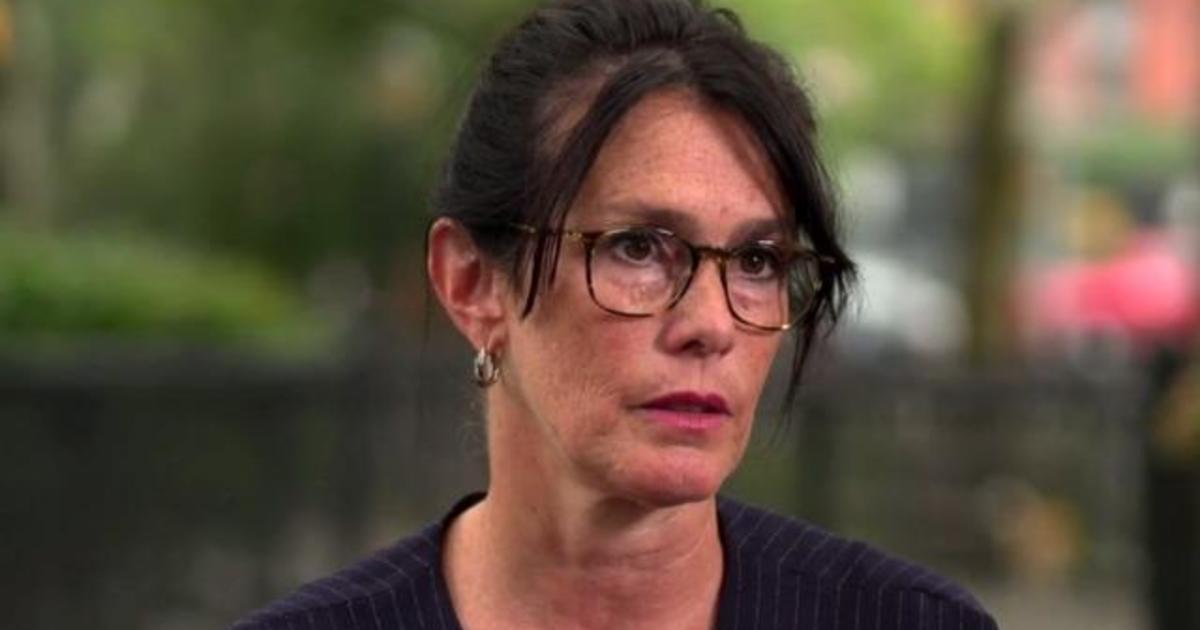A former chief in the New York City Police Department is accusing the department of creating a glass ceiling for women on the force. Lori Pollock filed a federal gender discrimination lawsuit Monday.
It cites “intolerable, difficult and unpleasant” working conditions that prevent women from advancing to “the most prestigious executive positions within the NYPD.”
“To rise to the level that I did only to be stopped because of my gender is enraging,” Pollock told “CBS This Morning Saturday” co-host Michelle Miller.
Pollock was a three-star chief who served the NYPD for 33 years before she says she was forced into retirement last week. She is one of just five women to achieve that high of a rank within the department.
“I saw other women getting treated poorly, and I knew that I was not going to advance, not under Commissioner Shea,” she said. “So I had to leave.”
She alleges in a federal lawsuit that Commissioner Dermot Shea denied her a promotion because of her gender and moved her to another position, which she considered a demotion.
“He ignored my requests to be considered for chief of detectives, and he subjugated me under a civilian male that started the week before I was demoted,” Pollock said.
Pollock claims the department has systematically denied female officers the opportunity to compete for high ranking positions.
“There’s never been a female chief of detectives, chief of patrol, chief of department … and no female police commissioners,” she said.
She is suing for monetary compensation for the “extreme stress, humiliation, embarrassment, mental anguish and damage to her reputation.”
“I think they know it’s a problem, but they’re not willing to address it, and that’s why I have to expose it. So that something gets done about it,” Pollock said.
Two former female police chiefs filed similar lawsuits last year against the NYPD, claiming they were pushed out of their positions because of what they called discrimination based on age, gender and race.
Nationwide, women make up around 12% of the police force and 3% of local police chiefs, according to Bureau of Justice statistics.
“It’s just a male-dominated field,” said Heather Taylor, a nearly 20-year veteran of the St. Louis Metropolitan Police Department. “And the biases come out when you have men making most of the decisions.”
Taylor is the first female sergeant in her department’s homicide unit. She said gender bias is an issue in her department and departments across the country.
“I have young women who’ve applied for jobs and … they’re qualified, and the job goes to a male who doesn’t have the degree and the certification that the female officer has and the time on,” she said. “My friends who are all around the country, we have the same complaints.”
“Same stories, across racial lines as well,” she said.
The St. Louis Metropolitan Police Department denies any gender bias and told CBS News that 16% of its department is made up of female officers and 20% hold the rank of sergeant and above.
Pollock hopes her lawsuit will bring positive change.
“I’d say my police career is over, but there are so many talented women behind me, and I feel that I need to move the ball down the field for those women coming in behind me,” she said.
In a statement, the NYPD told CBS News it will address the lawsuit when it’s been served. It added that “the contributions of women, both in leadership roles and in their representation in the uniformed and civilian ranks, across the police department, cannot be overestimated.”
